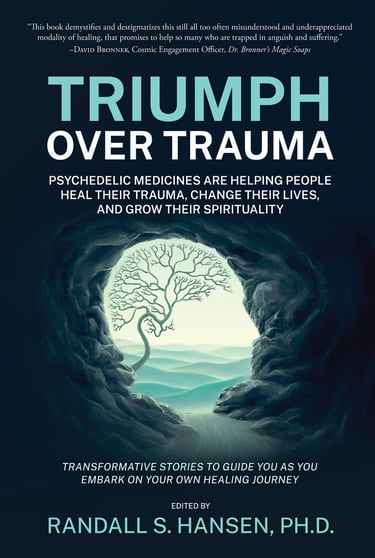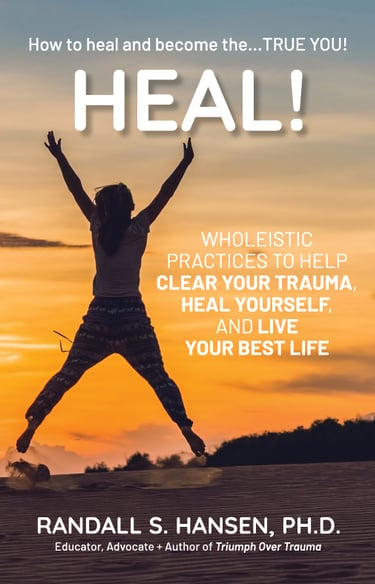Embracing Cooking As a Critical Life Skill
To me, cooking for family and friends is an expression of love and another way I can serve others – literally serving them foods that nourish and heal.
But why is it that only about a third of households cook from scratch regularly… and on any given day, 40 percent of people eat at least one fast food meal.
What happened? If we look just one generation ago, the vast majority of meals were cooked in the home and from real ingredients. Eating out of any kind was for special occasions, not because it was easier or more convenient.
Not that home economics classes taught healthy cooking, but at least those classes did emphasize the importance of the kitchen and cooking and baking as important life skills.
While – and because – I don’t see home economics classes returning to schools, I feel there is a moral imperative to bring cooking and baking skills back as one of the best ways to help end the massive health crisis we are facing because of so many people eating convenience foods – whether to-go items at the grocery store or fast food meals.
I grew up in the kitchen watching and later assisting my mom with meal prep, cooking, and baking, and I loved the quality time spent with her. Little did I know what a gift she bestowed upon me.
Why Learn to Cook and Bake
Regardless of your current cooking skills and abilities, learning more about cooking can seriously improve your quality of life. One of my brothers can’t boil water without burning the pot, but luckily his wife enjoys cooking, otherwise he would be on the convenience food diet.
Learning the basics of cooking is relatively easy. You don’t need to go from never having cooked to a gourmet chef; you simply need to learn the basics in the beginning. Learning how to cook will also offer you insights into the types of ingredients involved and should help you become better at choosing healthier options.
Most of the recipes you’ll find online and in most cookbooks (including the recipes in my book, The Healing Revolution Diet) are fairly easy to follow and many offer short prep and cook times. With the exception of fried foods and sugary desserts, most home-cooked meals are naturally healthier because they don’t contain all the extra ingredients used in ultra-processing; plus, with home cooking, you are using fresh and real (and ideally some local) ingredients.
Besides making healthier meals for yourself and your family, cooking at home is typically a much cheaper alternative to eating out, especially when you consider all the empty calories and cheap ingredients used in the meals prepared by most restaurants.
In 2023, American spending on food prepared away from home grew to $4,485 per capita, up from $4,004 in 2022 – a whopping 12 percent increase. If you consider an average meal cost of $15, that equates to 300 meals outside the home. Not surprisingly, during 2023, food-at-home spending was only $3,187 per capita. Eating out consumed about 60 percent of total food spending, the highest percentage ever recorded.
Finally, in head-to-head comparisons, there is no cost competition, as home cooking wins dramatically. Home-cooked meals typically average about $4-6 per person, while restaurant meals average about $15-20 per person. Saving roughly $10 per person per meal adds up to a lot more money in the household budget.
Thus, cooking more at home will help make your wallet a bit fatter and your waistline a bit thinner!
Learning to Cook and Bake
Several options are available if you have never learned how to cook or feel you do not have good enough cooking skills.
1. Buy a Basic Cookbook. Just a quick search online reveals that you have many options in choosing a cookbook, but to learn cooking, start with a basic one first. One of the all-time classics, Joy of Cooking, was first published in 1931 and is still a classic today. Another excellent choice because of its color step-by-step photos is Essentials of Cooking. One final option is How to Cook Everything: 2,000 Simple Recipes for Great Food.
2. Watch Simple Cooking Shows. Whether via a streaming platform, cooking network, or YouTube, you can find a plethora of chefs and cooking shows. Chef Jamie Oliver has several shows with simple recipes and many people have learned from Alton Brown’s Good Eats. Go to the additional resources to see websites with lists of fun and good cooking shows and podcasts.
3. Find a Cooking Class. You might have to travel to a larger town to access classes, but just a quick search found several restaurants that offer cooking classes in my area. Check with the restaurant community in your area as well as your local community college. You may also find a local cooking camp to help inspire your children or grandchildren. Finally, you might even try something like Meetup to find a local cooking group in your area.
4. Start Collecting Favorite Recipes. One of my fondest memories is watching my mom casually thumb through various “women’s” magazines searching for recipes that were interesting but also not too expensive for a family of six. Today, we have access to hundreds of thousands of recipes, whether from magazines, online recipe sites, or hundreds of cookbooks. Start building a library of future recipes to try.
5. Just Start Cooking. When I was trying to teach my daughter to cook, she would drive me crazy by ignoring recipe instructions and just adding different quantities or different ingredients that she intuitively felt would make the recipe better. Typically, that’s a skill that’s learned after years of practice, but if you’re the type who hates all the time spent learning technique, then by all means jump in and start experimenting.
Final Thoughts on Home Cooking
Cooking is one of those vital life skills, along with other critical personal and household hygiene skills, such as cleaning, first aid, basic repairs, and financial/money management that everyone should have.
Can you survive without having any cooking abilities? Sure, but it will be costly and take a bigger chunk of your income, and, it’s likely your health will suffer because of the quality of most restaurant food.
You don’t have to become a gourmet chef, but you may also find you have a gift for cooking you never knew about. Just try cooking and see where it gets you.
Even if you are living alone, there is no reason not to cook your own meals. In fact, you’ll enjoy a lot more tasty leftovers as most recipes are designed to produce at least four servings – and it may give you a reason to have guests over more often!
Finally, because I have a passion for grilling, I need to add that one can create quite a lot of meals using a grill and/or smoker. You can find numerous shows and books just on grill recipes and techniques.
Additional Cooking Resources
Dr. Randall Hansen is an evangelist, educator, and thought-leader... helping the world heal from past trauma and the poor food system. He is founder and CEO of EmpoweringSites.com, a network of empowering and transformative Websites, including EmpoweringAdvice.com.
He is the author of the groundbreaking Triumph Over Trauma: Psychedelic Medicines are Helping People Heal Their Trauma, Change Their Lives, and Grow Their Spirituality and the well-received HEAL! Wholeistic Practices to Help Clear Your Trauma, Heal Yourself, and Live Your Best Life.
The third book in the Wholeistic Healing Trilogy is the game-changing The HEALing Revolution Diet: A Science-based Approach to Heal Your Gut, Reverse Chronic Illnesses, Lose Weight, Clear Your Mind, and Increase Longevity.
Dr. Hansen's focus and advocacy center around true health and healing journeys that results in being able to live an authentic life filled with peace, joy, love. Learn more by visiting his personal Website, RandallSHansen.com. You can also check out Dr. Randall Hansen on LinkedIn.








